|
Page < 1 2 3 4 5 6 7 8 9 10 11 12 13 >
This chapter is in no way
anti-Christian but rather anti-conversion. It provides information about the
insidious campaign that is taking place to reduce and wipeout Hinduism, Buddhism,
Jainism and other Vedic traditions that are followed by large sections of humanity in
India and around the world.
For articles on Conversion
please go to the link below:
Articles on Conversion


Religious
Conversion is a
foreign policy objective of the Christian West.
***
How
the British Longed to convert the Parsis to Christianity
 Abraham
Lincoln
(1809-1865)
The 16th President
of the United States, successfully led his country through its greatest internal
crisis, the American Civil War, only to be assassinated as the
war was coming to an end. Before
becoming the first Republican elected to the Presidency,
Lincoln
was a lawyer, an Illinois
state legislator, a member of the United States House of
Representatives. He was an outspoken opponent of the expansion
of slavery in the United States. Abraham
Lincoln
(1809-1865)
The 16th President
of the United States, successfully led his country through its greatest internal
crisis, the American Civil War, only to be assassinated as the
war was coming to an end. Before
becoming the first Republican elected to the Presidency,
Lincoln
was a lawyer, an Illinois
state legislator, a member of the United States House of
Representatives. He was an outspoken opponent of the expansion
of slavery in the United States.
He said:
"The
Bible is not my book nor Christianity my profession. I could
never give assent to the long, complicated statements of
Christian dogma."
(source:
What
Some Famous People Have Said About Christianity).
Refer
to jesusneverexisted.com.
***
That
the Parsis of today, now that the light of science is breaking
upon them, should be making inquiries into the genesis of their
faith and the almost lost threads of their history, is a most
significant fact. They have found many things to astonish them.
The old Pahlavi literature has revealed to them many doctrinal
crudities which the better minds would gladly ignore as
authority on worship and creed, and which are deviations from
the severer code of Zoroaster. Bu these candid inquiries can
only result in good. They will suggest the striking contrast
between the conglomerate Parsi religion and Christianity, while
the contact with European Christians will constantly lessen the
prejudice against the Christian religion, an make the Parsis
more accessible to the Gospel.
In
the plane of moral ideas, they stand so far above the Hindus
that we must regard them as occupying a midway position between
Christianity and Buddhism.

Parsi
from Bombay.
It
must be admitted, however, that the Parsis have proven very
inaccessible to the Gospel.
(image
source: Indika: The Country and the people of India and Ceylon
- By Rev. John
F Hurst p.
151 - 152).
Refer
to chapter on European
Imperialism and Harvesting
Our Souls - Missionaries, their design, their claims
- By Arun Shourie and
Things
they don't tell about Christianity.
Refer
to jesusneverexisted.com
***
We
cannot but believe that the Parsi, as he studies more closely
the difference between his own faith and the Christian, will, in
due time, come to accept the latter. It must be admitted,
however, that the Parsis have proven very inaccessible to the
Gospel. It is said, that of all the Christians in the presidency
of
Bombay
, not more than a dozen are from the Parsi community.
But
Rev. J Murray Mitchell, (1815 -
1904) who has studied the prevailing tendencies among the people
during his residence in Bombay, has a hopeful view of their Christian future. He says:
“The
immense disparity between Christ and Zoroaster is dawning, we
believe, on that interesting people, the Parsis of India. They
have been clinging to their ancient faith from a feeling of
nationality rather than of religion – from tradition more than
conviction; but immense changes are certainly at hand. But we
believe that, as the Magi from the East, who probably were
Zoroastrians, hastened to lay their gold, frankincense, and
myrrh at the feet of the new-born Redeemer, so ere long, the
Parsis will in all probability be the first of Eastern races to
take upon them, as a race, the easy yoke of Christ.”
(source:
Indika: The Country and the people of India and Ceylon
- By Rev. John
F Hurst p.
151 - 152).
Top of Page
The
Hypocrisy of English Imperialism
How British wanted to Christianize India
 Francois
Marie Arouet Voltaire
(1694-1774)
France's greatest writers and philosophers, was
atheist, and a bitter critic of the Church, which he looked upon
as the instigator of cruelty, injustice, and inequality, wrote,
in a letter to Frederick
the Great (1712–86): Francois
Marie Arouet Voltaire
(1694-1774)
France's greatest writers and philosophers, was
atheist, and a bitter critic of the Church, which he looked upon
as the instigator of cruelty, injustice, and inequality, wrote,
in a letter to Frederick
the Great (1712–86):
"Christianity
is the most ridiculous, the most absurd, and bloody religion
that has ever infected the world."
"Where is the
prince sufficiently educated to know that for seventeen hundred
years the Christian sect has done nothing but harm?'
"Every
sensible man, every honorable man, must hold the Christian sect
in horror."
“You will notice that in all disputes between Christians since
the birth of the Church, Rome has always favored the doctrine
which most completely subjugated the human mind and annihilated
reason.”
“As you know, the Inquisition is an admirable and wholly
Christian invention to make the pope and the monks more powerful
and turn a whole kingdom into hypocrites.”
In
his 'Philosophical Dictionary',
Voltaire gave a time-defying verdict:
"Pagan religion
shed very little blood, while ours flooded the earth with it.
Christianity has deluged the earth with blood for the sake of
sophisms'."
About
the atrocities committed by the Roman Catholic Church in Goa in
the 16th, 17th and 18th centuries, Voltaire in his 'Fragments of
India's History' observed: "Goa
is sadly famous for its Inquistion,
which is contrary to humanity as much as to commerce. The
Portuguese monks deluded us into believing that the Indian
populace was worshipping the Devil, while it is THEY who served
him'.
(source:
Letter to Frederick the Great,
quoted in the Encyclopedia
of Unbelief, Prometheus Books, 1985, p. 715 and The
Burningcross and
Letter
to Frederick the Great, quoted in the Encyclopedia
of Unbelief Prometheus Books, 1985, p. 715).
Refer
to jesusneverexisted.com.
Conversion
(Christian and Islamic) is not Spirituality - it is Imperialism,
Intrusion, and Terrorism
 Sir
Sarvepalli Radhakrishnan
(1888-1975) philosopher and President of India, Eastern
Religions & Western Thought p.
149
that:
Sir
Sarvepalli Radhakrishnan
(1888-1975) philosopher and President of India, Eastern
Religions & Western Thought p.
149
that:
“Christian
proselytism has done irretrievable harm to native
races by disintegrating their
culture."
Refer
to Memoirs
of Goa - By Alfredo DeMello and
Hidden
from History: The Canadian Holocaust
- By Kevin Annett and documentary
Unrepentant
and Canada's Genocide.
Refer
to The
Bible Unmasked -
by Joseph Lewis.
Tim Mitchell
a
Columnist
has wisely observed
that:
"Christianity’s
rapacious evangelical agenda has caused, and will continue to
cause, incalculable damage to humanity’s spirit. Because of
its steadfast conviction that it is “universal” and that it
can transplant itself into any culture at any time and any
place, as if it were somehow making things they way they should
be, Christianity fails to recognize the damage it is inflicting
upon religion as a collective human experience when it
compromises the integrity of other faiths. Just as
industrialization has caused countless environments across the
globe to erode due to overpopulation, pollution and massive
clear-cutting efforts, I believe that Christianity’s ruthless
evangelization efforts that resulted in the destruction of
countless religious traditions has caused a spiritual erosion of
sorts around the world."
(source:
Freedom
of Religion, Freedom of Destiny - By Tim Mitchell.
Refer to
Harvesting
Our Souls - Missionaries, their design, their claims
- By Arun Shourie
***
Protestant Missions
in
British India
- By Rev. John F Hurst
While
India
has attracted the commercial and military spirit of the West,
its great spiritual needs have not been less potent in
attracting the evangelist. The beginning was simple and obscure,
but abundant in faith and sacrifice.
Evangelization
of India from America
Important
facts show the early relation between American Christianity and
India. The first gifts from Anglo-Saxon Christians for the
evangelization of India were from America; that one of the first
full accounts of the methods of work in Indian evangelization
sent to the English-speaking world was to New England; and that
some of the first copies of books which came from the mission
press in India and fell into Anglo-Saxon hands were sent to New
England and were received by Cotton
Mather. Serampore was the
first English purpose to bring to pass, in the realm of
Christian life, what Clive and Hastings achieved by military and
civil triumphs in India.
Ziegenbalg and Plutschau




Ziegenbalg
and King Fredrick of Denmark.
Fredrick
IV, the Danish king, lost no opportunity and instructed his
court preacher, Dr. Lutkens, to take measures for sending out
missionaries to Tranquebar. While
India
has attracted the commercial and military spirit of the West,
its great spiritual needs have not been less potent in
attracting the evangelist.
Refer
to Crimes
of Christianity - By G W Foote and J M Wheeler Progressive
Publishing Co. London. 1887.
Refer
to chapter on European
Imperialism and Harvesting
Our Souls - Missionaries, their design, their claims
- By Arun Shourie and
Things
they don't tell about Christianity. Refer
to jesusneverexisted.com.
Watch
video The
Hunt for Soul - Conversion activities in India (In Dutch and
English)
***
Tranquebar,
a little town 180 miles south of Madras, was the cradle of Protestant missions in the Orient. That the
missionaries from
Denmark
began their magnificent work here belongs to the region of
religious romance. On July 9, 11706, Ziegenbalg
and Plutschau landed here. Why should they come to this obscure
and insignificant place? Simply because Tranquebar was a little
possession of Denmark. It became a Danish settlement through the accident of a
shipwreck. In 1618 Roland Crape, the captain of a Danish
East India
ship, was shipwrecked here.
The
King of Tanjore Vijaya
Raghunatha Nayak in 1620, saw in this accident an
advantage and permitted the Danes to settle in Tarangambadi (Tranquebar)
and carry on Trade in the Tanjore country. Believing it to be a
good opportunity to show a kindness to the Danes, he made over
the town of
Tranquebar
to Crape, and the Danish flag floated over the fort of
Tranquebar. Fredrick IV, the
Danish king, instructed his court preacher, Dr.
Lutkens, to take measures for sending out missionaries
to Tranquebar.
Schwartz
Christian
Frederik Schwarz, who was destined to prove an inspiration to
the cause of missions world over, arrived in
Southern India
in 1759, and, without waiting for a critical knowledge of Tamil,
began at once with a few words and in broken speech. If we
consider all the qualities which constitute a sublime missionary
life, the career of this man is almost without a parallel in
missionary history. With the death of Schwarz, in 1798, the
first period of Protestant missions came to an end. The
difficulties had been numerous, and of such magnitude as to
terrify any spirits less brave than the heroes who made the
first Protestant attack upon the dense mass of Hindu paganism.
Carey, Marshman, and Ward
William
Carey arrived in
Calcutta
in 1793, began a new era, not alone in the Indian missions, but
in the history of universal evangelization. He was joined
afterwards by Marshman and Ward, and the three planned for the
occupation of all
Northern India
. The forces of this mission radiated in all directions.
Martyn
 Henry
Martyn, a chaplain of the East India Company, arrived in 1806,
and began his brief but remarkable career in the valley of the
Ganges
. In less than two years after his arrival he had translated the
New Testament into Hindustani, written a commentary in the same
language on our Lord’s parables, and began a Persian
translation of the New Testament. He was consumed by his
passionate zeal for souls. He died in 1812 at the age of 31 at
Tokat, Asia Minor on his way home from
Persia
to
England
. His body lies where he died, and his tombstone bears the
following inscription, written by Lord
Macaulay: Henry
Martyn, a chaplain of the East India Company, arrived in 1806,
and began his brief but remarkable career in the valley of the
Ganges
. In less than two years after his arrival he had translated the
New Testament into Hindustani, written a commentary in the same
language on our Lord’s parables, and began a Persian
translation of the New Testament. He was consumed by his
passionate zeal for souls. He died in 1812 at the age of 31 at
Tokat, Asia Minor on his way home from
Persia
to
England
. His body lies where he died, and his tombstone bears the
following inscription, written by Lord
Macaulay:
“here
Martyn lies! In manhood’s early bloom
The Christian found a Pagan tomb;
Religion, sorrowing o’er her favorite son,
Points to the glorious trophies which he won”
Martyn
left behind an example which has been a singular force in
leading many, in both
England
and America, to enter upon the missionary career.
Judson and Newell
In
1812 two American missionaries, Judson and Newell, arrived in Calcutta. The British government, which had not yet learned that the
Christian religion was a greater force to preserve
India
to England
than the army itself, ordered their expulsion from the country.
After 1813, there were no further expulsions of missionaries.
The Bishop’s College in
Calcutta
and the
Baptist
College
in Serampore had been doing invaluable work, each in its own
way, towards translating the Scriptures, establishing schools
and building up a Christian life among the native populations.
The British government had learned that its interests in
India
lay in the same path with the evangelization of the country.
Of
the 791 foreign missionaries , 25 of these are connected with
American societies. The nationalities of the others are as
follows:
England
– 276
Scotland
– 78
Ireland
– 17
Wales – 11
Canada
– 23-404
United States
– 139
Germany
– 128
Switzerland
– 18
Denmark
– 9
Others – 40
Native Sons – 42
“
India
is now open to missionary work. All the Indian gates are down;
the bars are shattered into small fragments; the locks are
ground into fine dust. Every stream sings a welcome to the
evangelist of peace. The King of Nations is entering”
One
of the most significant signs of the Indian times lies in the
fact that since the Mutiny of 1857
(War of Independence)
England
has learned that the Christian religion is the real, and only,
basis of a permanent tenure of the country.
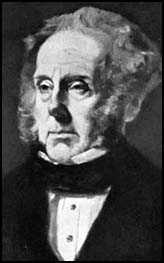 In
1862 Lord Palmerston paid a
tribute to the loyalty to the British government of the native
Christians of India, and added: In
1862 Lord Palmerston paid a
tribute to the loyalty to the British government of the native
Christians of India, and added:
“It
is not only our duty, but it is our interest to promote the
diffusion of Christianity, as far as possible, through the whole
length and breadth of
India
.” The report of the Secretary of State and Council of India,
1871- 72, says: “the government of India cannot but
acknowledge the great obligations under which it is laid by the
benevolent exertions made by missionaries, whose blameless
example and self-denying labors are infusing new vigor into the
stereotyped life of the great populations placed under English
rule, and are preparing them to be in every way better men and
better citizens of the great empire in which they dwell.”
There will be no lower attitude occupied by the government than
is expressed in these strong words.
No
missionary will ever again be warned off, as Judson was, from an
Indian port.
(source: Indika: The Country and the people of India and Ceylon
- By Rev. John
F Hurst p.
432 – 444 and p. 450 - 453).
Refer
to jesusneverexisted.com. Refer
to chapter on European
Imperialism
Refer
to Foreign
contributions to India 2006 - 2007
and Christian
Institutions Top List of NGOs Operating in India in 2007
Christian
Spiritual Domination
"Who
is Christianity for? It may seem an odd question. The plainest
of answers is furnished by the so-called 'great commission'
which concludes St Mathew's Gospel: 'Go ye therefore and teach
all nations, baptising them in the name of the Father, and of
the Son and of the Holy Ghost.' What could be more explicit than
that? But it needs only a slight acquaintance with the history
of the past 2,000 years to show that Christians have not always
heeded even the least ambiguous of instructions. consider the
withering rebuke delivered by a gathering of Baptist ministers
to the young William Carey,
later to be so famous in the Indian mission field, when in 1786
he first voiced his wish to become a missionary:
'Sit
down, young man. When it pleases the Lord to convert the heathen
He will do it without your help or mine.'
(source:
The
Barbarian Conversion - By Richard Fletcher
p. 1). Refer
to chapter on European
Imperialism
Top of Page
1857
War of Independence and Justifying British Colonialism in India
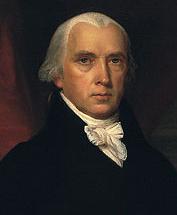 James
Madison (1751-1836) was an American politician, the
fourth President of the
United States
(1809–1817), and one of the Founding
Fathers of the United States. Considered to be the
"Father of the Constitution", he was the principal
author of the document. In 1788, he wrote over a third of the Federalist
Papers, still the most influential commentary on the Constitution.
James
Madison (1751-1836) was an American politician, the
fourth President of the
United States
(1809–1817), and one of the Founding
Fathers of the United States. Considered to be the
"Father of the Constitution", he was the principal
author of the document. In 1788, he wrote over a third of the Federalist
Papers, still the most influential commentary on the Constitution.
He has
observed this about Christianity:
"What
have been Christianity's fruits? — Superstition, bigotry and
persecution".
***
Victor
Hugo rightly said that revolution is the lava of
civilization. Political convulsions, like geological upheavals,
often usher in new epochs in the life of any nation. The War of
1857 was undoubtedly an epoch-making event in India’s struggle for freedom. For what the British sought to deride
as a mere Sepoy mutiny was India’s First War of Independence in a very true sense, when people
from all walks of life, irrespective of their caste, creed,
religion and language, rose against the British rule.
Indian
history appears to be remarkably free of large scale peasant
revolts (like The
French Revolution and
The Russian Revolution)
of the kind that have provided the historians of Europe
and China with materials for assessing class antagonisms. For
this reason the war of 1857 has been of special interest.
Western
Intrusion into Non-European World and
tampering
with the religions of India?
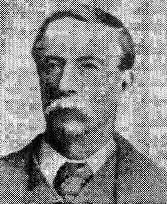 Ross Lewis Mangles (1833 - 1905) the Chairman of the
Directors of the East India Company
said in the House of Commons in 1857: Ross Lewis Mangles (1833 - 1905) the Chairman of the
Directors of the East India Company
said in the House of Commons in 1857:
"Providence
has entrusted the extensive empire of Hindustan to England, in
order that the banner of Christ should wave triumphant from one
end of India to the other. Everyone must exert all his strength
that here may be no dilatoriness on any account in continuing in
the country the grand work of making India Christian."
***
It
was war in which Western man was pitted against Orientals, race
against race, Christianity against the resurgent religions of
India.
Charles
Dickens (1812 - 1870 )
fulminated like a savage
tyrant when he wrote:
 ‘I
wish I were a Commander In Chief in
India
. The first thing I would do to strike
that Oriental Race with amazement....should be to
proclaim to them that my holding that appointment by the leave
of God, to mean that I should do my utmost to exterminate the
race upon whom the stain of the late cruelties rested; and that
I was there for that purpose and no other, . . .now proceeding,
with all convenient dispatch and merciful swiftness of
execution, to blot it out of mankind and raze it off the face of
the Earth.’
‘I
wish I were a Commander In Chief in
India
. The first thing I would do to strike
that Oriental Race with amazement....should be to
proclaim to them that my holding that appointment by the leave
of God, to mean that I should do my utmost to exterminate the
race upon whom the stain of the late cruelties rested; and that
I was there for that purpose and no other, . . .now proceeding,
with all convenient dispatch and merciful swiftness of
execution, to blot it out of mankind and raze it off the face of
the Earth.’
British
Atrocities
One
of the conspicuous features of British writing of 1857 had
been on emphasis on the atrocities committed by Indians on
Europeans.
"If
in 1776 the Americans had failed, would you now talk about the
American Mutiny?"
Speaking
in the House of Commons in July 1857, Benjamin
Disraeli described the uprising of 1857 as a
‘national revolt’ while Lord
Palmerston, the then Prime Minister, tried to down
play the scope and the significance of the event as a ‘mere
military mutiny’ (much like what is termed as "insurgency
in Iraq by the American
Government today").
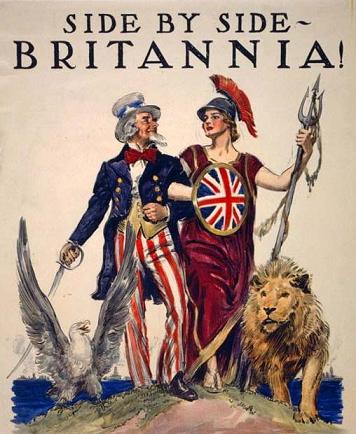
White Man's
burden. Civilizing the Heathens of India and Spreading Democracy
in Iraq.
America:
The 21st century Britain's Imperial apprentice.
The
First War of Independence was a war in which Western man was pitted against Orientals, race
against race, Christianity against the resurgent religions of
India.
The
British tried to down play the scope and the significance of the event as a ‘mere
military mutiny’ much like what is termed as "insurgency
in Iraq" by the American
Government today.
Refer
to chapter on European
Imperialism
***
Reflecting
this debate, the early historian of the rebellion, Charles Ball,
though he sided with the name of ‘Mutiny’ in his title
(using mutiny and Sepoy insurrection), yet he labeled it a
‘struggle for liberty and independence as a people’ in the
text of his book.
Sir John Kaye (1814 - 1876)
historian and author of Christianity in
India, writing with an evangelical mindset made the Brahmins the
scapegoat for revolt.
"Every
monstrous lie exploded, every abominable practice suppressed,
was a blow struck at the Priesthood; for all these monstrosities
and abominations had their root in Hindooism, and could not be
eradicated without sore disturbance and confusion of the soil.
The murder of women on the funeral-pile, the murder of little
children in the zenana, the murder of the sick and the aged on
the banks of the river....Education, pure and simple in its
secularity, was quite enough in itself to hew down this dense
jungle of Hindooism; but when it was seen that the functions of
the English schoolmaster and the Christian priest were often
united in the same person at examinations conducted by chaplains
or missionaries, a fear arose lest even secular education might
be the mask of proselytism...every year there were there
manifestations of a continually increasing desire to emancipate
the natives of India from the gross
superstitions which enchained them."
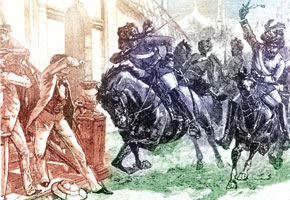 Surendra
Nath Sen formerly the Head of the Department of
History, Calcutta University and Vice Chancellor of the Delhi
University wrote: Surendra
Nath Sen formerly the Head of the Department of
History, Calcutta University and Vice Chancellor of the Delhi
University wrote:
"The
Mutiny was inevitable. No dependent nation can for ever
reconcile itself to foreign domination. A despotic government
must ultimately rule by the sword though it might be sheathed in
velvet. In India the sword was apparently in the custody of the
Sepoy Army. Between the Sepoy and his foreign master there was
no common tie of race, language, and religion."
He wrote in his book Eighteen
fifty seven:
"The cause of the mutiny was as much as
anything a kind of collective English insensitivity to Indian
religious beliefs and Indian ways in general, combined with the
excesses of nineteenth century Christian evangelism. Admittedly,
this evangelism did embrace reforms such as the suppression of
suttee, but Sen stresses that there was a body of educated
Indian opinion moving in the same direction. Further, many of
the vaunted reforms of the English, such as the suppression of
feudal tyranny, were deeply flawed in practice: hence he dwells
upon the sheer scale of the looting practiced by the English
soldiery, and even their officers, and the corruption which was
the norm in a civil government presided over by Englishmen. In
short, while Sen is forced to recognize the Later English Raj
component of his own heritage, he resents the brutality with
which it was imposed."
Henry
Mead author of The Sepoy
Revolt: Its Causes and Its Consequences "the
measureless folly of our rule” in India, a rule based, he
declares, on “torture and lawlessness, and the perpetual
suffering of millions”. He traces in excruciating detail the
system of torture employed by tax collectors of the raj and
asserts that “under Christian sway,”
the peasant population of India has been reduced almost to a
state of “ultimate wretchedness” The British have
imposed on India, he concludes, “a system of rule which is
wholly destructive”
Gautam
Chakravarty author of The Indian
Mutiny and the British Imagination has remarked that:
"that
nineteenth-century imperial expansion, like the “US-led
neo-colonial globalisation of the twentieth century,”
“justified multiform violence through self-serving,
self-congratulatory high talk about civilizing and racial
missions”; Victorian professions of philanthropic intent
toward India were only so much “humbug” designed to justify
plunder." British imperialism in India was propelled
by general belief in “an inevitable national and racial
urge” to foreign domination and that there was in Britain an “almost immediate
manufacture of a language combining patriotic fervour with
xenophobia,” a language anticipating the “jingoism and
warmongering of later, high imperial, decades.”
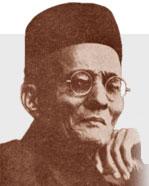 The
analyses of the nature and courses of the war that had been made
by British writers were challenged by a young Indian writer in a
work that has played a remarkably influential role in the
development of modern Indian historgraphy. The
analyses of the nature and courses of the war that had been made
by British writers were challenged by a young Indian writer in a
work that has played a remarkably influential role in the
development of modern Indian historgraphy.
Vinayak
Damodar Savarkar (1883 - 1966) was one of a group of
students who went to Europe and realized that something more
than the destruction of the British was needed: Indians must be
filled with the desire to rise against their oppressors. It was
for this reason that he wrote his account of 1857, calling it
"the First Indian War of
Independence." His book was printed in Holland,
was immediately proscribed by the British authorities,
nevertheless copies were smuggled into India, and those who
never read it began to think of the revolt of 1857 as a great
national war of liberation.
The use of the term
"Indian Mutiny" is considered as unacceptable and offensive,
as it is perceived to belittle what
they see as a "First War of Independence"
and therefore reflecting a biased,
imperialistic attitude of the erstwhile colonists.
Hira Lal
Gupta of Saugar
University in the Journal of Indian
History wrote:
"Although the 19th century
political and philosophical concept of nationalism of a strictly
western type was not evolved in India till then, the idea of a
nationhood and the concept of India, as one country inhabited by
the Hindus and Muslims, were not new. Sri Savarkar designated
the uprising of 1857 as the first war of Indian Independence, he
revealed a simple truth and provided inspiration to the English
educated intelligentsia of India coming to the forefront of the
nationalist oragnizations. There is nothing wrong in calling the
great Revolt as the national uprising of India against foreign
domination."
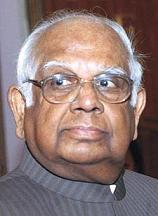 Somnath Chaterjee
(1929 - ) Office
of the Speaker of the Lok Sabha in October 2006 said:
Somnath Chaterjee
(1929 - ) Office
of the Speaker of the Lok Sabha in October 2006 said:
“The War of 1857 was
undoubtedly an epoch-making event in
India
’s struggle for freedom. For what the British sought to deride
as a mere sepoy mutiny was
India
’s First War of Independence in a very true sense,
when people from all walks of life, irrespective of their caste,
creed, religion and language, rose against the British rule. Not
only did these martyrs give up their lives for the sake of the
country’s freedom but also left a message for the future
generations --- a message of sacrifice, courage of conviction, a
strong belief in the ultimate victory of the people in their war
against oppression.
'With
these words, I once again pay my humble tributes to the martyrs
of the 1857 War of
Independence
...”
(source:
1857 in India: Mutiny or War of
Independence - Edited by Ainslee T Embree and War
of No Pity: The Indian Mutiny and Victorian Trauma - By Christopher
Herbert).
Refer
to chapter on European
Imperialism
***
Racial
Equality Bill Of 1919, And Massacre At Jallianwala Bagh
No
apology for the Massacre by
the
Government of
Britain
The
British enacted the Rowlatt Act in
February 1919 essentially designed to suppress all
Indian demands. The Rowlatt Bill drew nation wide protests. The
people of
Amritsar
chose to hold a peaceful meeting on Sunday the 13th of April
1919, which was also the Baisakhi, in Jallianwala Bagh to
express their opposition to the Bill.
 While
the Indian nationalists of
Amritsar
made arrangements for a peaceful meeting, the staunch British
imperialist General Reginald E. H. Dyer,
chief of the British army in
Amritsar
, resolved to teach the natives a lesson. Dyer commanded his
troops to open fire, without warning, on the peaceful gathering
of about 20,000 local Indians from
Amritsar
and the nearby villages. The machine guns killed 379 men women
and children, and at least 1200 received serious injuries.
Eminent journalist and historian Khuswant
Singh claims a higher figure of 2000 wounded, many of
whom succumbed to their injuries in the months to follow. While
the Indian nationalists of
Amritsar
made arrangements for a peaceful meeting, the staunch British
imperialist General Reginald E. H. Dyer,
chief of the British army in
Amritsar
, resolved to teach the natives a lesson. Dyer commanded his
troops to open fire, without warning, on the peaceful gathering
of about 20,000 local Indians from
Amritsar
and the nearby villages. The machine guns killed 379 men women
and children, and at least 1200 received serious injuries.
Eminent journalist and historian Khuswant
Singh claims a higher figure of 2000 wounded, many of
whom succumbed to their injuries in the months to follow.
The
Government of
Britain
as of today, despite demands from the Government and people of
India
, have not offered an official apology for the massacre of
Jallianwala Bagh.
The 13th of April 1919 was the day of Baisakhi,
which marks the beginning of the solar New Year in
India
. For the people of the
province
of
Punjab
where lies the city of
Amritsar
, where the massacre took place, Baisakhi is a mega event.
Adherents of the Sikh religion celebrate Baisakhi for a
combination of reasons; it is the day of their most important
religious festival, harvest festival and the New Year’s Day.
Religious significance of Baisakhi stems from several important
historical facts, which are as follows. The Hindus, not
only of Punjab but of the entire country of
India
, observe Baisakhi as the New Year’s Day, celebrated by ritual
bathing, worshipping and merriment. And
the Baisakhi is the day the British chose to massacre the
unarmed civilians, men women and children, of
Punjab
, and to utterly humiliate Indians, who had most generously
contributed to the war efforts of the British.
The
massacre of Jallianwala Bagh was a turning point in
Indo-British relations, just as the rejection of the Racial
Equality Bill was for the Anglo-Japanese relations. The massacre
brought a new resolve among the Indian leadership demanding
freedom. Mahatma Gandhi launched his non-cooperation movement
that would eventually succeed in driving the British off
India
.
(source:
Racial
Equality Bill Of 1919, And Massacre At Jallianwala Bagh - By
Mrs Shizuka
Imamoto with Dr Nachiketa Das).
Top of Page
Page < 1 2 3 4 5 6 7 8 9 10 11 12 13 >
|